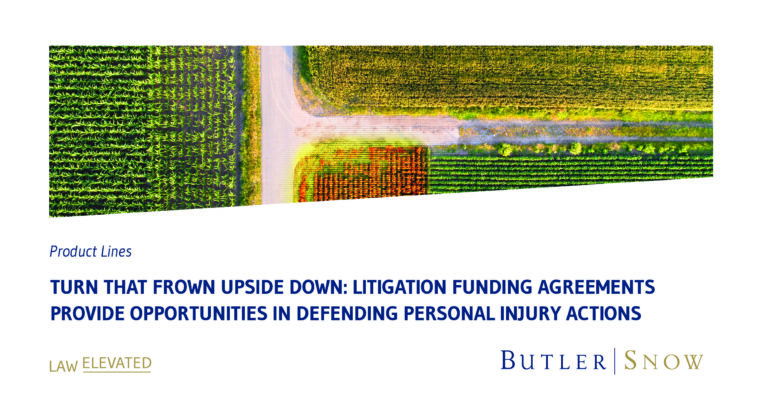Litigation funding involves a third-party, which is not a party to the lawsuit, advancing funds on behalf of the injured plaintiff in return for a portion of any financial recovery. Although litigation funding can take many forms, plaintiffs typically use litigation funding in order to secure advance payment for medical bills and living expenses. Defending parties have expressed concern that litigation funding can provide plaintiffs with what in essence is a “blank check” for unnecessary or unreasonable treatment from medical providers approved by the litigation funder. Experience has shown that, unlike Medicare, Medicaid, and private medical payors, litigation funders can be unwilling to negotiate appropriate reductions in the funders’ medical liens. These issues can increase the cost to defend cases and make settlement more difficult.
Despite defendants’ concerns, litigation funding is apparently here to stay. For example, the American Bar Association and California Bar Association have each issued recent opinions which do not prohibit litigation funding. Instead, these major bar organizations have provided guidance on “best practices.”[1]
The bar’s acceptance of litigation funding in a general sense does not eliminate potentially problematic issues in a given litigation. Courts have found these agreements to be discoverable because they usually include an assignment of rights between the plaintiff and the litigation funder, as well as agreements between the funder and the plaintiff’s medical providers.[2]
As such, discovery regarding funding agreements can provide useful information, give rise to appropriate affirmative defenses, and ultimately aid the successful resolution of a personal injury suit. Defendants have challenged whether plaintiffs who have assigned their rights to the funder have standing to assert claims, and whether the funder is a “real party in interest.”
Perhaps even more significant, we have seen agreements between funders and a plaintiff’s medical provider in which the provider seemingly agrees to provide supporting testimony in exchange for receiving payment of the provider’s medical charges. It goes without saying that such provisions in a funding agreement can be used to question the impartiality and credibility of the medical provider.
But how does a defending party obtain litigation funding agreements? Naturally, the first step is to determine whether the plaintiff has indeed obtained funding.
We have found that plaintiffs can be reluctant to disclose these agreements voluntarily. Thus, defendants should propound discovery requests which specifically seek disclosure. Irrespective of discovery requests, defendants should also closely examine the plaintiff’s medical intake and billing records, as these will often identify the litigation as the “payor” or “insurer.”
After determining whether litigation funding is involved, the next step is to obtain the documents related to the funding. Subpoenas for the funder’s records and to the pertinent medical providers are a valuable tool.
But defendants should be prepared for resistance to such discovery. Plaintiffs and funders have raised a litany of objections, including relevance, the collateral source doctrine, and more.[3] Regardless, we have found these challenges to be worth the effort.
In sum, although litigation funding has gained acceptance, not all is lost. Funding agreements can provide advantages to defending parties, if they know where to look, and how to put them to good use.
[1] See Cal. Bar Assoc. Formal Op. 2020-204 (Oct. 1, 2020) (available at: http://www.calbar.ca.gov/Portals/0/documents/ethics/Opinions/Formal-Opinion-No-2020-204-Litigation-Funding.pdf); ABA Resolution; Best Practices for Third-Party Litigation Funding (August 2020) (available at: https://www.americanbar.org/content/dam/aba/directories/policy/annual-2020/111a-annual-2020.pdf).
[2] See Collins v. Benton, 2019 WL 6769636 (E.D. La. Dec. 12, 2019) (agreements with plaintiffs’ medical providers and a litigation funding company are discoverable); Massey v. Dollar Tree Stores, Inc., 2019 WL 2717978 (E.D. Tenn. June 28, 2019) (same); Woulard v. Greenwood Motor Lines, Inc., Civ. A. No. 1:17cv231-HSO-JCG, 2019 WL 3311752 (S.D. Miss. Feb. 4, 2019) (same).
[3] See cases cited in fn. 2, supra.
